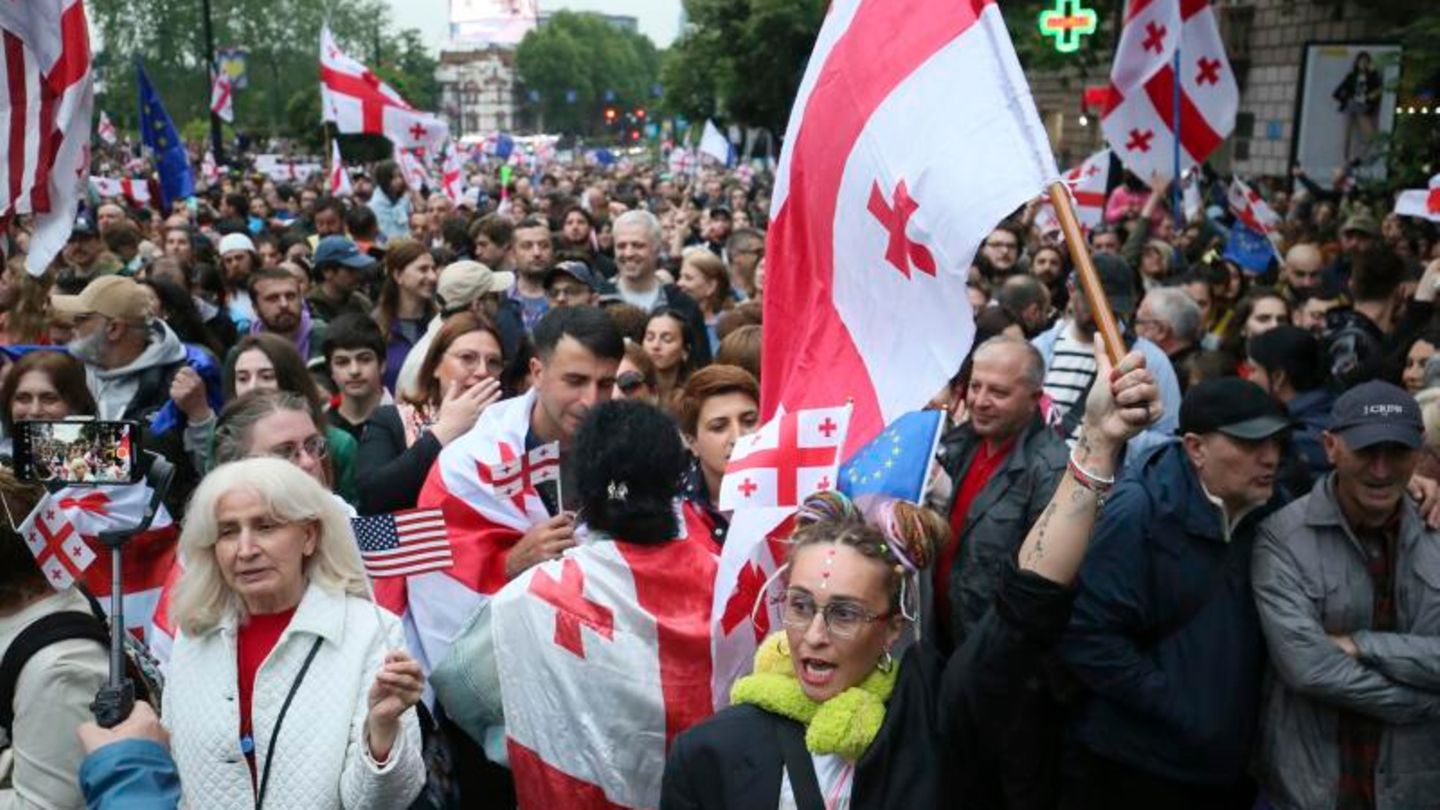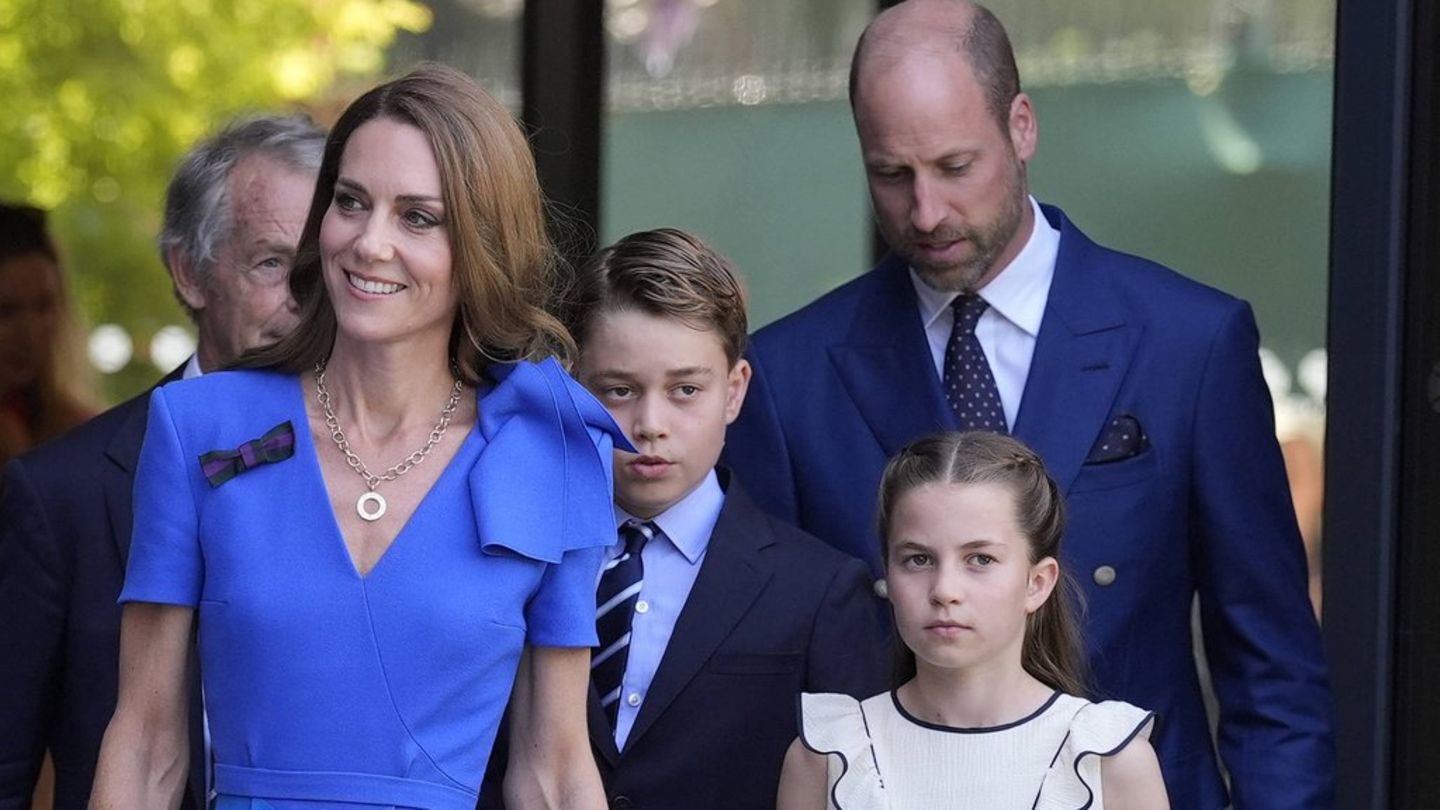Kremlin as a role model? Despite weeks of mass protests, Georgia’s parliament has finally passed a law to tighten controls on NGOs funded from abroad.
Despite weeks of mass protests, Georgia’s parliament has finally passed a law to tighten control over civil society. Despite criticism from the EU and the USA, 84 of the 150 MPs voted in favor of the law on Tuesday. In doing so, parliament also overrode a veto by pro-European President Salome Zurabishvili. A simple majority is sufficient to reject the veto.
The ruling Georgian Dream party, which holds the majority in parliament, is thus tightening the accountability of non-governmental organizations that receive more than 20 percent of their money from abroad. It justifies this with greater transparency. On Tuesday, the debate in parliament was again marked by fierce accusations from the government and the opposition. Opposition MP Anna Tsitlidze accused the political leadership of a “thoughtless policy” that is blocking Georgia’s path to the EU and will cause the country many problems.
Parliament Speaker Shalva Papuashvili, in turn, accused the opposition MPs of acting not in the national interest, but in the interests of other countries. “This is open treason.”
Thousands demonstrate again against law to control civil society
According to a reporter from the German Press Agency, thousands of people gathered in front of parliament to protest against the law. The police were also present in large numbers. The demonstrators insulted representatives of the Georgian Dream as “slaves”, “traitors” and “Russians”.
They believe that the regulation, dubbed “Russian law,” is intended to silence critical organizations. They see parallels to the law passed in Russia against so-called foreign agents. This has been used by the Kremlin for years to suppress the opposition and independent media.
The peaceful demonstrations in Tbilisi by the protest movement have been going on for weeks. Another large demonstration was planned for the evening. Many demonstrators fear that the authoritarian course of Georgian Dream will also endanger the former Soviet republic’s desired accession to the EU.
EU course threatened by Georgia
Representatives from Brussels have repeatedly called for the government to withdraw the law. Experts from the Council of Europe have also recently criticized the provision. In its current version, there are fundamental errors that have significant negative consequences for freedom of expression and assembly, the right to private life and the right to engage in society, according to Strasbourg.
The USA has already announced consequences. According to Secretary of State Antony Blinken, they want to impose visa restrictions on “individuals responsible for or involved in undermining democracy in Georgia, as well as their family members.” In addition, bilateral cooperation between the USA and Georgia will be put to the test.
Kremlin praises Georgian government and speaks of “normal practice”
The Georgian government was not disturbed by this. It rejected the sanctions as interference in internal affairs and declared them to be counterproductive. At least there was praise from Moscow: Kremlin spokesman Dmitry Peskov denied that Russia had anything to do with the law. He described it as “normal practice” to protect itself from external influences.
Georgia lies on Russia’s southern border and is therefore on an important global political front line. A majority of the population wants to break away from Russia. The desired accession to the EU and NATO is enshrined in the constitution. Since December, the country has had the status of an EU accession candidate. At the same time, Moscow controls the breakaway Georgian regions of South Ossetia and Abkhazia, which it has recognized as independent states.
Source: Stern
I have been working in the news industry for over 6 years, first as a reporter and now as an editor. I have covered politics extensively, and my work has appeared in major newspapers and online news outlets around the world. In addition to my writing, I also contribute regularly to 24 Hours World.




